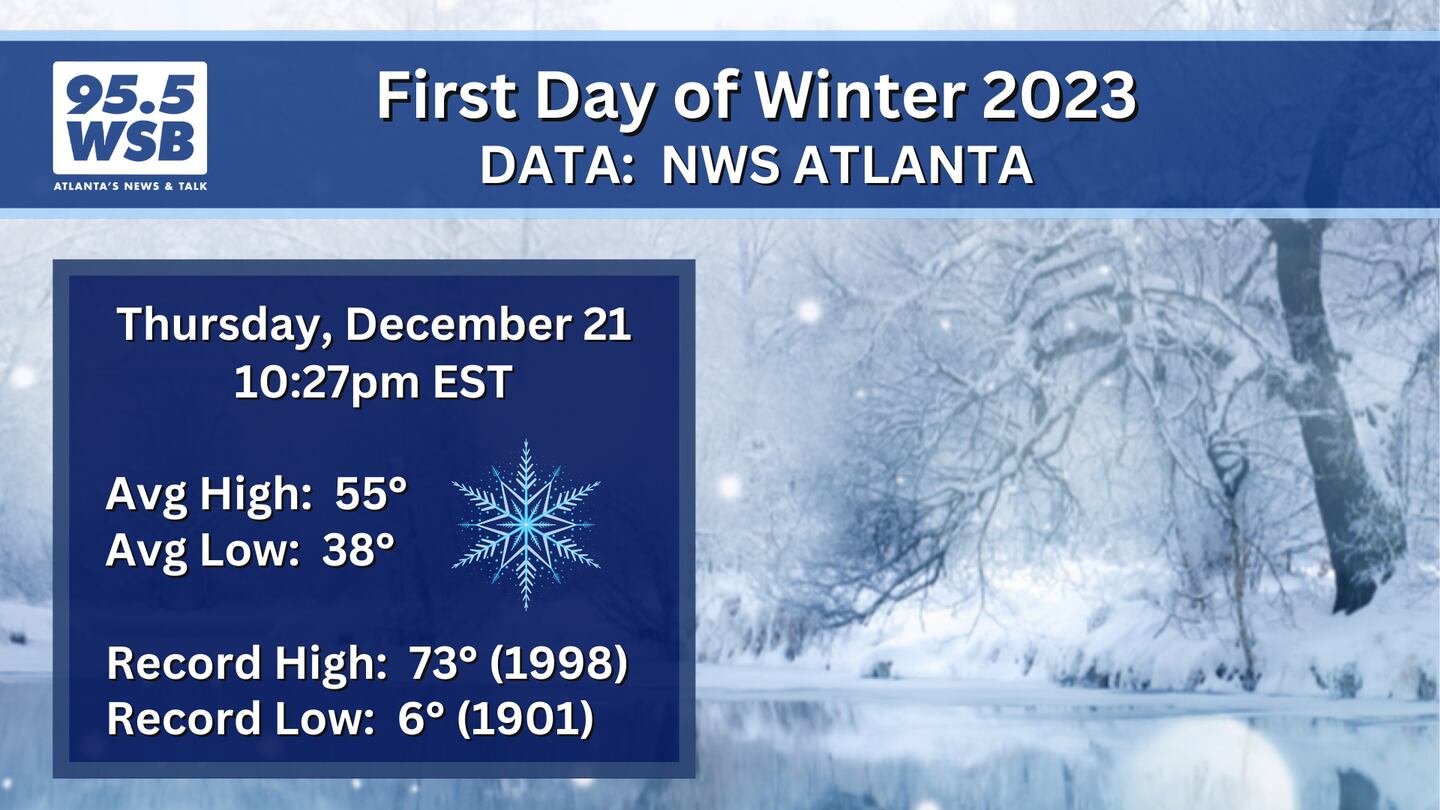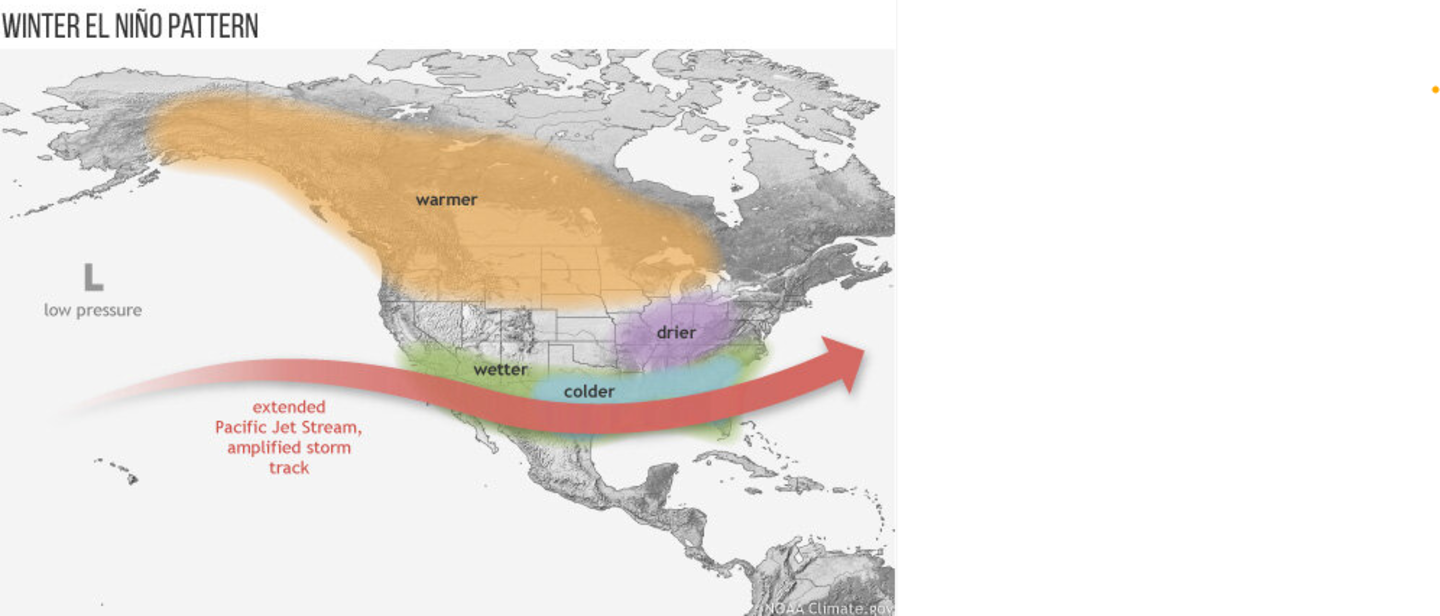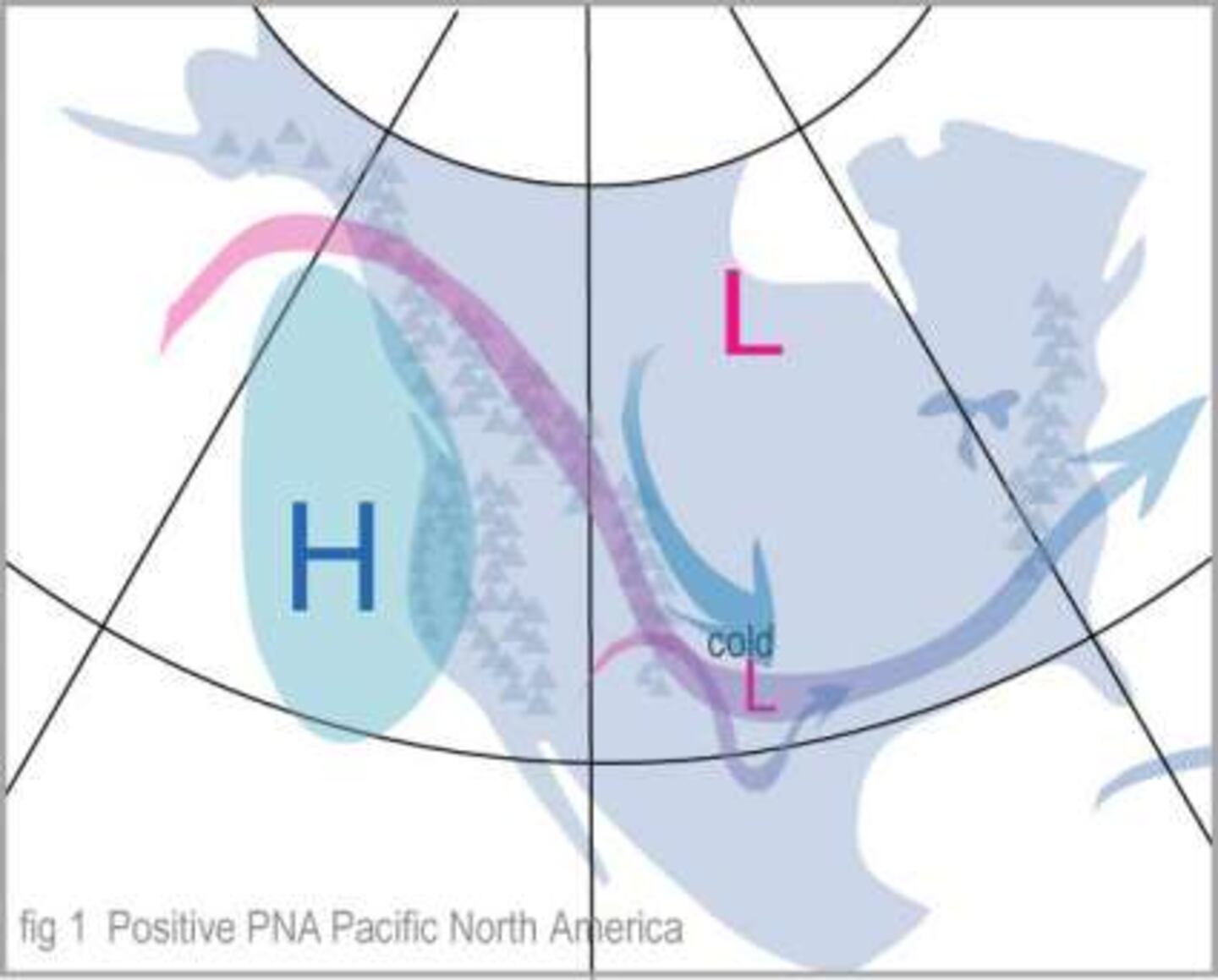Winter 2023 officially begins on Thursday, December 21, but already the questions loom:
- How cold will it be this winter?
- How much precipitation -- particularly frozen precipitation -- should we expect this winter?
Overall, the Southeast U.S. -- including Metro Atlanta and North Georgia -- can expect a cooler and wetter winter compared to previous winter seasons. This is mainly due to the flip from La Niña last winter to El Niño this summer. NOAA’s Climate Prediction Center anticipates El Niño to continue through winter and into spring 2024, with some signals that indicate that this may be a “strong” El Niño, similar to the seasons of 1997-1998 and 2015-2016.
What is El Niño?
You hear and see it all the time in headlines and new stories -- I’ve even seen it used in marketing for boots and clothing -- but what exactly is El Niño?
El Niño is the presence of abnormally warm ocean waters located along the equator in the Pacific Ocean. These abnormally warm sea surface temperatures span from the coast of South America to as far west as the International Date Line, or 180°W.
The animation below illustrates the sea surface temperature anomalies for the previous 12 weeks (July 26, 2023 through October 11, 2023) and is a classic example of an El Niño. [The previous three winters featured a La Niña, which is colder than average ocean waters.]
Warmer than average sea surface temperatures in turn warm the air above the ocean, impacting the weather along the equator and in turn, across the globe. This means that El Niño is a teleconnection -- a weather feature developing far away can still have connections to our weather here.
The illustration below shows the typical El Niño winter pattern over the United States. Most notably, a southern branch of the jet stream -- known as the subtropical jet -- pumps moisture from the Pacific Ocean over the US Southwest and into the Southeast. This subtropical jet is responsible for aiding the development of low pressure systems across the South, including coastal lows along the Gulf of Mexico.
As a result, El Niño tends to bring wetter conditions to the Southeast during the late winter and early spring months, including North Georgia and Metro Atlanta.
Due to the extra cloud cover, overall temperatures trend cooler than average during a Southern El Niño Winter.
But is it cold enough for... snow?
While there is a greater probability for precipitation during an El Niño winter, the difference between a rainy winter and a snowy winter cannot be summed up with El Niño. Other shorter term teleconnections need to be in play, including the following:
- Arctic Oscillation (AO) -- negative phase opens the door for cold air outbreaks in the Eastern half of the US
- North Atlantic Oscillation (NAO) -- negative phase means colder air for the Eastern U.S.
- Pacific North American Pattern (PNA) -- positive phase means colder air for the Eastern U.S.
The AO, NAO, and PNA teleconnections alternate from negative to positive phases on a weekly to bi-weekly time frame. If the negative phases of these patterns occur during winter, they can usher in a Cold Air Outbreak (CAO).
With El Niño bringing more precipitation to Southeast -- including Metro Atlanta -- there are more opportunities for these Cold Air Outbreaks to convert the liquid to wintry precipitation. However, it is not a guarantee, so while I can confidently say this winter will be wetter than average, the amount of snowfall this year is still highly variable!
Wait, go back... What happened during previous “strong” El Niño winters?
At the beginning of this post, I stated that NOAA’s Climate Prediction Center anticipates El Niño to continue through winter and into spring 2024, with some signals that indicate that this may be a “strong” El Niño, similar to the seasons of 1997-1998 and 2015-2016.
These two winter seasons can be used to analogs to gain a picture as to what to expect this coming winter.
Winter 1997-1998
The Winter 1997-1998 season featured 0.6 inch of snowfall in the Metro Atlanta area. By comparison, the average rainfall in Atlanta during December 1 through February 28 is 1.8 inches.
The season also featured 17.98 inches of rainfall. By comparison, the average rainfall in Atlanta during December 1 through February 28 is 13.71 inches.
Averaging the overall daily highs and lows during the Winter 1997-1998, the average temperature for the season was 45.2 degrees. This is cooler than the average temperature for an average December through February timeframe of 46.9 degrees.
Winter 2015-2016
The Winter 2015-2016 season featured 0.3 inch of snowfall in the Metro Atlanta area. By comparison, the average rainfall in Atlanta during December 1 through February 28 is 1.8 inches.
The season also featured 25.04 inches of rainfall. By comparison, the average rainfall in Atlanta during December 1 through February 28 is 13.71 inches.
Averaging the overall daily highs and lows during the Winter 2015-2016, the average temperature for the season was 49.5 degrees. This is warmer than the average temperature for an average December through February timeframe of 46.9 degrees.
When was the last time Atlanta had a “good snow”?
I see quite a few comments that Metro Atlanta is due for a “good snow”, which I will define as a seasonal snowfall total greater than 1.8 inches.
In that case, the Winter 2017-2018 was the last time Atlanta experienced heavier snowfall totals. That winter, a whopping 4.7 inches of snow fell during the season. However, that winter featured a La Niña, illustrating that trends are not guarantees for a seasonal outlook!
Are You Ready for Winter? Share Your Thoughts With Me!
Facebook: Christina Edwards WSB
Instagram: ChristinaWSBwx
Twitter: @ChristinaWSBwx
TikTok: @ChristinaEdwards955WSB
©2023 Cox Media Group














